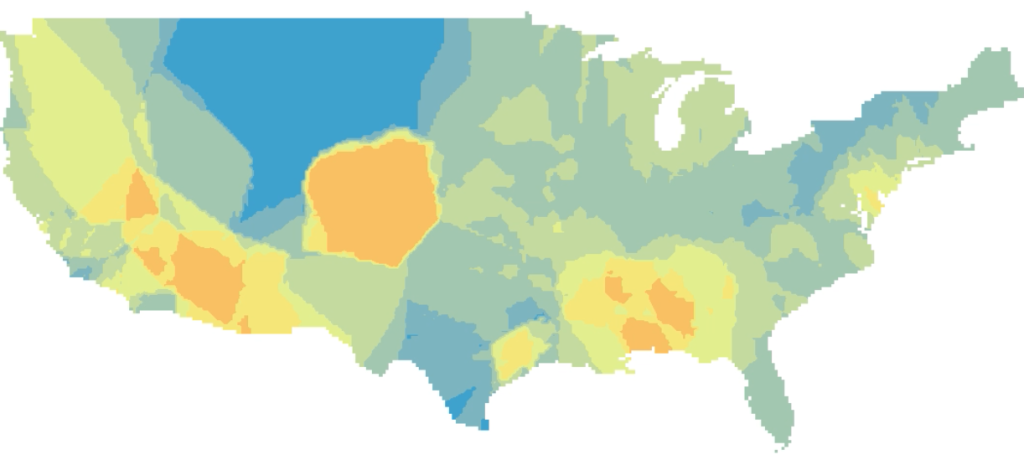COVID-19’s Influence on Ambient Air Pollution
Team: Team Air
Program:
Environmental Health and Engineering
Project Description:
The COVID-19 pandemic led to extensive upheavals in numerous facets of our daily lives. One major change was the institution of mandatory stay-at-home orders during the early months of March, April, and May of 2020. During this period, 42 states instructed all non-essential workers to work remotely and not travel to work, resulting in a dramatic decrease in commuter traffic (Moreland et al., 2020). The U.S. Department of Transportation Federal Highway Administration found that the 2020 months of March, April, and May saw decreases in traffic of 18.6%, 39.8%, and 25.5% respectively when compared to 2019 (Travel Monitoring). Numerous studies have been conducted in the past that model and predict the effect of vehicle transportation on ambient air pollution, but until recently there have been few opportunities to accurately quantify changes in air pollution while real-world traffic patterns change. The overall question of our project is: Did the effects of COVID-19 lockdowns make 2020 a statistically anomalous year in air pollution yearly averages and/or seasonal averages. We believe the utilization of US Environmental Protection Agency (EPA) air quality measurements taken over the last 20 years provides the perfect opportunity to calculate and visualize the exact relationship between commuter traffic and air pollution across the continental US, and any changes in air pollution that may have occurred as a result of the COVID-19 pandemic.
Team Members
-
[foreach 357]
-
[if 397 not_equal=””][/if 397][395]
[/foreach 357]
Project Mentors, Sponsors, and Partners
Course Faculty
-
[foreach 429]
-
[if 433 not_equal=””][/if 433][431]
[/foreach 429]
Project Links
Additional Project Information
Feel free to explore all of our online content and findings at https://arcg.is/1zW4vn
